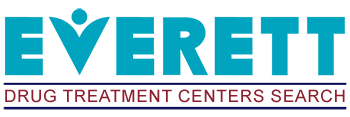Moral Reconation Therapy in Everett, MA
There are many ways to tackle drug abuse and addiction, from medication treatment through to counseling and behavioral therapy. Moral reconation therapy (MRT) is form of cognitive behavioral therapy (CBT) use in drug treatment clinics and correctional institutions in Everett and across the United States. Moral reconation therapy is designed to initiate long-term behavioral changes from the inside-out, with program participants learning how to recognize cognitive and emotional distortions and put mechanisms in place to make better life decisions.
What is Moral Reconation Therapy (MRT)?
MRT is a practical and highly-focused implementation of CBT used to treat people with substance use disorders and other significant problems. This form of therapy has been in use since 1988, making it a relatively new form of therapy in drug treatment centers across the country. Like other forms of CBT, MRT seeks to identify problematic thought patterns and emotions in an attempt to change problematic behavior patterns. Applied in a group context, MRT uses a range of homework assignments and group exercises to instigate real lifestyle changes that stick. Benefits of MRT include better frustration tolerance, reduced anti-social behavior, reduced thrill-seeking behavior, better emotional expression, and increased moral awareness. By teaching people to recognize difficult emotions at an early stage, therapists help them to create healthy psychological associations and find renewed purpose.
Cognitive Behavioral Therapy (CBT)
CBT is a powerful form of psychotherapy used across a range of substance use and mental health disorders. Originally developed to treat depression, this popular form of therapy has proved successful in treating anxiety disorders, eating disorders, post-traumatic stress disorder (PTSD), and a range of substance use disorders. While CBT has not been particularly successful in treating opiate use disorder, it has helped countless drug addicts to make positive lifestyle changes. MRT and other forms of CBT help drug addicts to make healthy changes to teaching them how to recognize problem areas and giving them the skills they need to make different lifestyle decisions. This problem-focused and action-oriented methodology is both psychologically profound and immediately practical.
MRT Steps
MRT works through a number of individual steps or stages, with program participants given different tasks and exercises depending on their individual progress. The sequential nature of the program makes it easy for therapists to evaluate clients at each stage of the process. The first stage of MRT is concerned with the identification of restrictive belief patterns and attitudes. By learning how to recognize problem areas as they arise, participants can slowly learn how to make different life choices. The second step involves a detailed assessment of positive and negative personal relationships, including peer groups, family systems, and unhealthy friendship groups associated with past drug use.
The third step involves various methods aimed at reinforcing positive belief patterns, with new psychological associations made over time. The fourth step involves the formation of a healthy and positive identity, with the fifth step enhancing this self-concept. The sixth stage of MRT involves tasks to help clients improve their frustration tolerance and develop various coping mechanisms to help them stay away from drugs and alcohol. The seventh and final step in the MRT process helps participants to enhance their moral reasoning in order to improve their decision making powers.
Everett Drug Treatment Centers is your primary recovery resource. Please give our recovery advocates a call today at (617) 553-9495 for more information.
